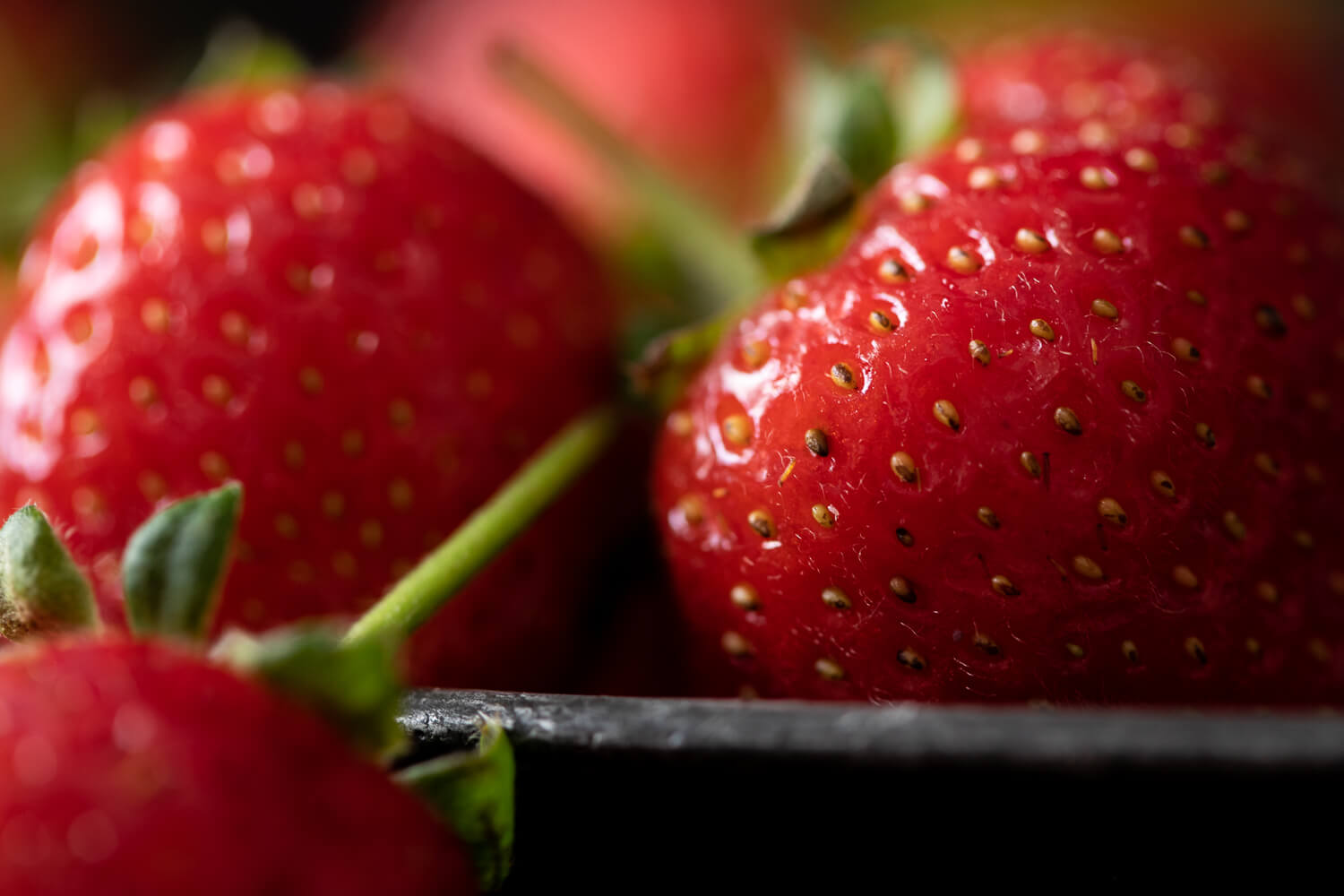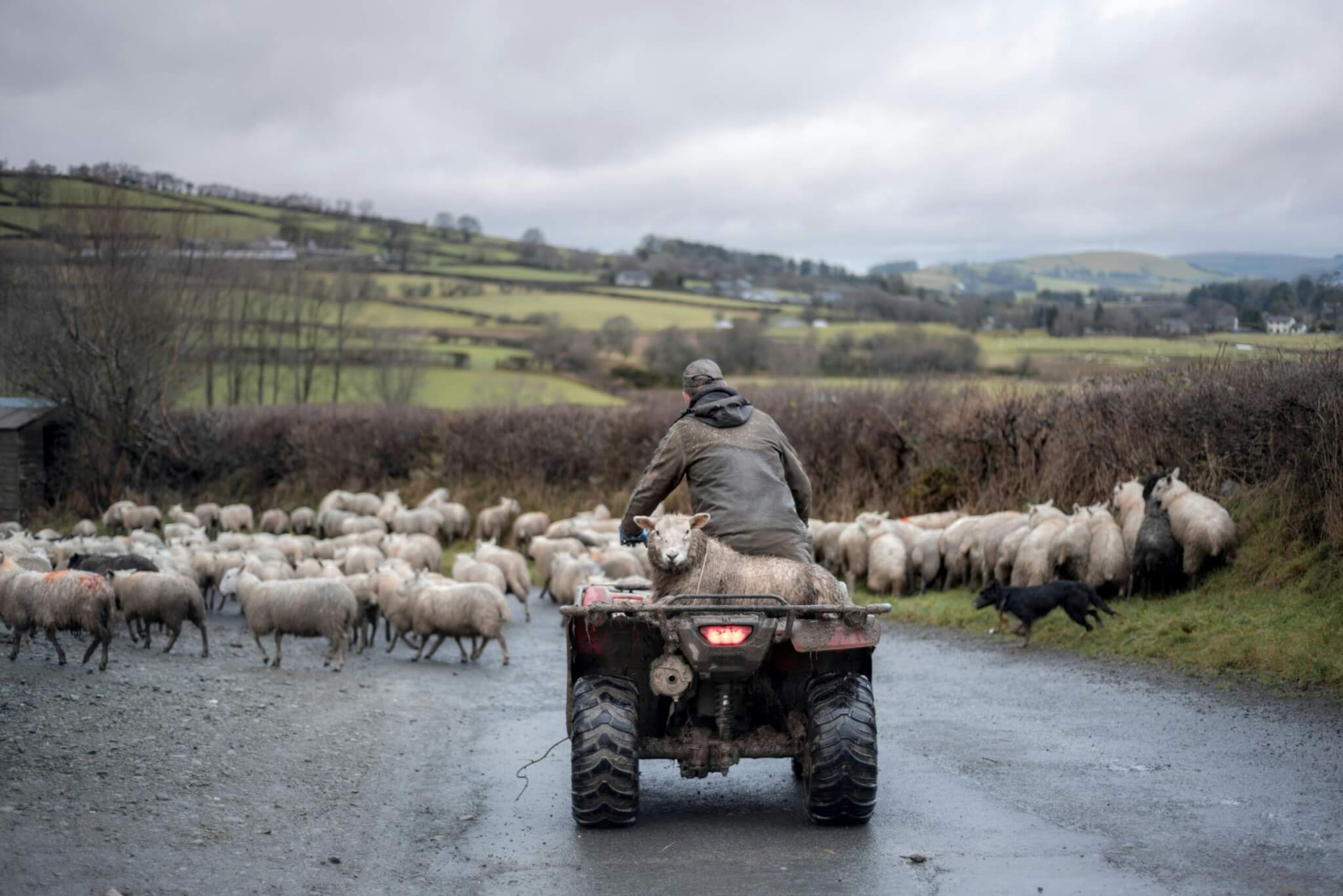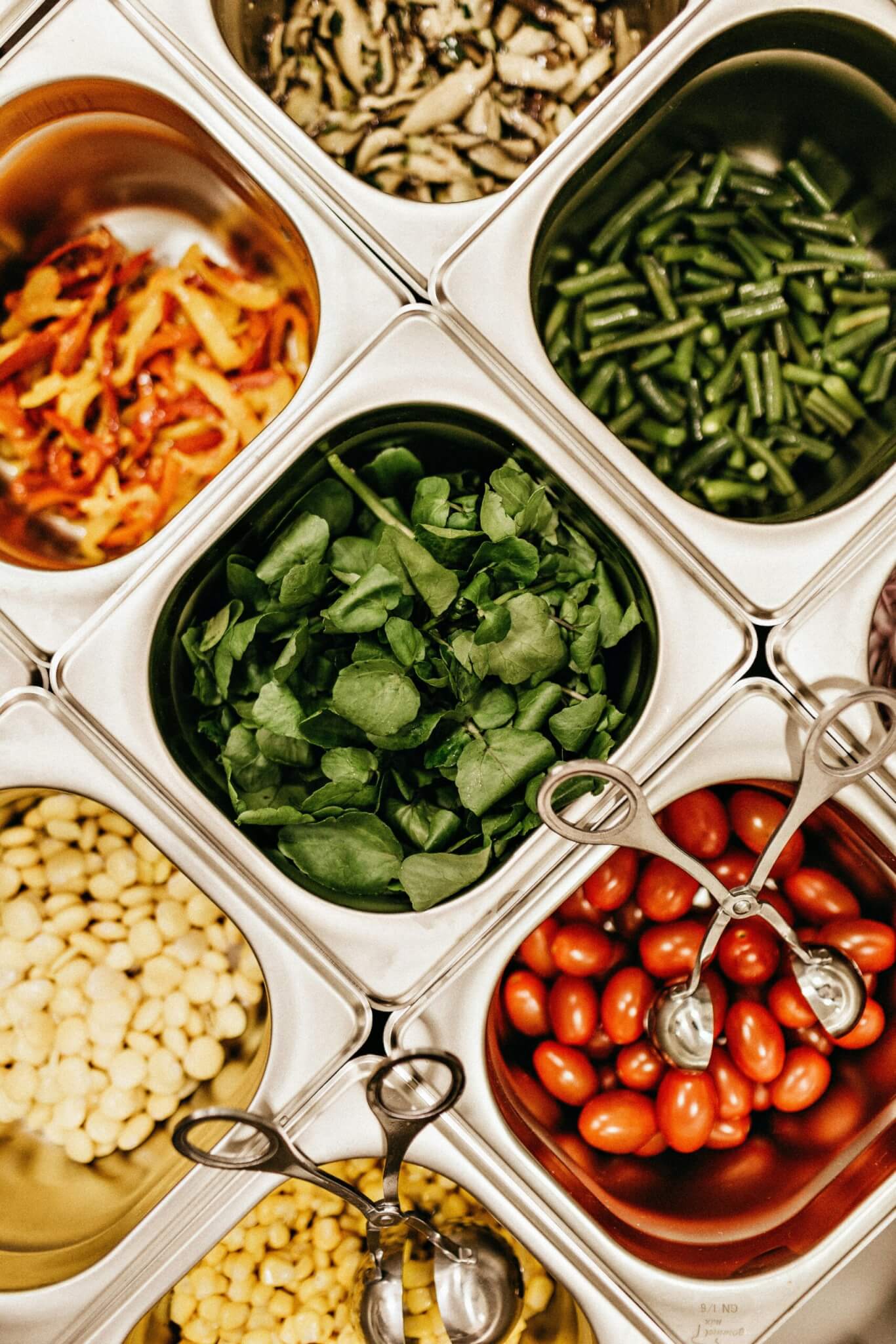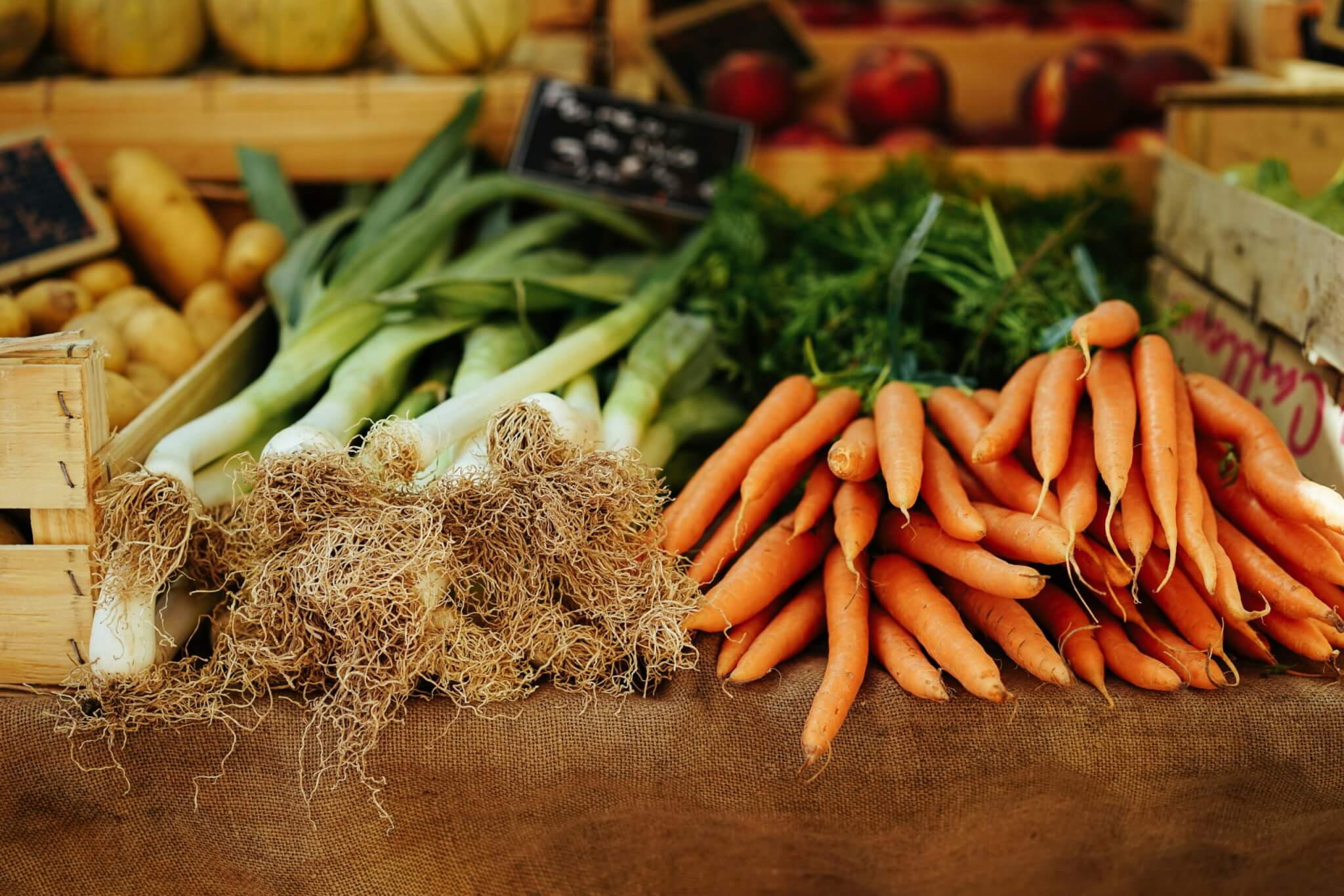Much as we seek to avoid complaints, I often argue that we should celebrate any customer who cares enough about Riverford to want to be a ‘critical friend’ and help us do better. We monitor complaints carefully and congratulate ourselves if we keep them below 1.5 per thousand. However, concentrating too much on what is objectively measurable carries the danger of ignoring the subjective – which is often just as important, but is always harder to manage. A narrow focus on the quantifiable can also lead to excessive risk aversion. This is true of life, and of summer fruits – which travel better firm, but are bland when picked too early.
The first Devon strawberries are being picked this week. Cherries are coming from Paco in Valle del Jerte (‘cherry valley’) in Cáceres, Spain, and apricots from Enric in Catalonia. Stone and soft fruits will be at their best for the next three months – and so we are entering our season of most complaints. These fruits are delicate and thin-skinned, with a fleetingly short season; they can move from sweet, succulent, perfumed delight to melting disappointment, from one delivery to the next. The best fruit will always be eaten in the field, from older, softer varieties, which are ripened on the tree and never see a cold store or a two-day journey by refrigerated truck. But as you cannot be there, our challenge is to make just enough of the right compromises, take just the right risks, and bring you as much of that flavour as possible – with a minimum of bruised, split, or overripe fruits. Working closely with our growers, we will do our best to get it right, delight you most of the time, and trust that you will let us know when we fall short.
The cautionary tale for us all should be the once-ubiquitous, but delicate, round peaches. Thirty years ago, these epitomised juicy deliciousness – but through the endeavours of breeders, agronomists, logisticians, and supermarkets, they became so disappointing that no one buys them, and the market died. We have replaced them with the once-rare flat (or ‘doughnut’) peaches, which have soft flesh and an excellent flavour. If we insist on taking no risks, we will all be the losers.
Berries do not ripen after harvest, so keep them in the fridge and eat as soon as possible. Stone fruit arrives slightly firm – it will ripen in the fridge. Fruit is always best eaten at room temperature, for maximum flavour and sweetness.














Good evening Mr Singh-Watson,
I read with interest your notes that comes with all the boxes Friday early mornings. Farming is not just a topic, an issue or a political weapon, it is vital for human existence since we don’t go out in the wild foreging and around 85% of residents in England live in cities not the country side. My husband Paul grew up on a small arable farm and even now he listen to tweet of the day becasue they discuss farming. Fresh food nurture and support us and it is about time the farming comunity comes together and demand that all farming should be organic for the sake of the land and for our dignity and wellbeing. I am Italian, we sit on the foundation of family, food and faith. I subscribe to food and family and am increadibly sad that 99% of all food in supermarket is mutilated, plasticated and / or turned in ready meals and ultra process food. Come together as a community and in the forthcoming elections hopefully there will be more farmers not voting tory. What is needed for this lovely land is a brand new foundation of Green-Labour-Liberals coalition government so that the planet, people and democracy are the centre of the next parliament. We as customers will continue supporting you even though it can be expensive at times. Any chance of opening a little cantine to serve your fresh food in Kingston? When working in Strasbourgh I used to have my lunch at a little cantine for workers which served only seasonal food produced by a cooperative of French farmers. It was organic, macrobiotic, vegetarian and incredibly ethical, and not expensive. There I learn even more than I knew already about food. Don’t give up. This is the time to push forward. Warmly, Licia
Local market garden fruit businesses need a boost. Our ancestors had an extraordinary range of knowledge & their orchards and cool stores were one of the country’s best assets.
I don’t know exactly what Riverford could do to assist, as you’ve been helping farm colleagues to get a guaranteed price, choose the best veg varieties for disease resistance and cultivation techniques that would support topsoil health.
Perhaps you are doing some of this in a pioneering context already. Much has to be experimental because of climate catastrophe’s looming disaster, including the failure of staple crops, and possible ‘boom’ weather conditions for adverse insects and fungi.
Before Beeching closed the branch line railways, masses of summer fruit would speed into Covent Garden in the very early mornings. How proud the growers were of this produce, how many villages were glad of the work and adaptable in their land use, and how important their skills were.
I often found myself wondering where are the big round peaches from my youth. I don’t remember at that time knowing about Nectarines. I want a round peach.
Of course I realise things move on. I feel almost happy when I see fruit and veggies going off. Well at least they have not had things done to them to give an eternal shelf life like many brands of breakfast cereals.
I try to eat organic when I can and also try not to complain. A little imperfection here and there. Who can tell exactly what a Custard Apple or Avocado is going to look like until it’s cut into? I look at myself and see more and more imperfections as days go by.
This is life and nature, which I am part of and try to enjoy.
I am one of your “critical friends.” I agree with your philosophy 100%. But on the practical side, could you please improve your quality control? About every third time your baby spinach is slimed up and stinky, like it would be if I had bought Lidl’s or Sainsbury’s product and left it in the bottom of the fridge for two weeks. Each time that happens I send a pic of a plate of the slimy leaves to your customer service. So much goes to waste! What are you doing wrong? Improve, and there will be less food waste. You need to improve your handling, storage and quality control. Riverford is not a charity. I will not spend money on much inferior product just because because I agree with your philosophy.
Yes, quality control is crucial I agree.
Baby spinach is probably one of most rapidly perishable vegetables of all; I would prefer not to get it in the boxes.
One strategy is to cook the whole bagful the day it arrives, remembering that it loses its vitamins in a trice.
https://www.bbc.co.uk/food/techniques/how_to_cook_spinach
I very much admire and agree with Guy Singh-Watson on just about everything I have ever read by him or abut him. He’s a hero for the environment and on how to treat people right. It’s the main reason I buy from Riverford. However, I really must also agree with the comments below about the poor quality control on some of the vegetables, in particular the cherry tomatoes. More often than not they arrive in poor condition, like they’ve been around too long or have some kind of blight that’s affected their skin. I really do hate to complain, but I don’t think growing nice organic cherry tomatoes is that difficult, so there’s really no excuse. Sorry, Guy.
I’m quite a fan of Guy’s; I agree and support almost everything he has written or publicised for the last 40 years. I met him back in the day when he was growing organically on about 5 acres of his family’s non-organic estate. I’ve been growing here on 115 acres for 48 years, and it’s interesting (and somewhat uncomfortable) to see how Riverford has expanded to include most of the southern half of the country. We (that is, the “community” of right-minded, organic, agri-ecological, sustainably sourcing, local-supporting folks) are right with you on nearly all of the ideas you put forth; but is there a danger Riverford has become a new mega-player in the food business? Consider: Tesco started life as an east-end market stall, and then opened one shop in north London. Joe Sainsbury was a local butcher to begin with, and then added a few more products. Asda was originally a collective of “associated dairies”. The Co-op used to own farms and manufacturing businesses and was initially the most successful successor to the super-idealistic Rochdale Pioneers in the 19th century. McDonald’s started with one cafe in southern California, offering better flavours and faster service than their competitors. Each of these businesses offered the public the “right” kind of products and services at the right price; they all followed the idealism of their founders, and most of them had much improved welfare standards and workers’ conditions, compared to their competitors.
Many of Riverford’s customers buy into the ethos of sustainability, shop local, and minimal food miles. Does Riverford embody those aspects of the right-on idealism these days? Does Riverford care about being so big that other smaller organic farms are bypassed and undermined? We have never had a complaint about our spinach or other leafy greens; we pick them on the same day we supply them into Bristol. But we find it discouraging to see a Riverford van regularly passing our driveway, having driven up from nearly 100 miles away with produce that we could be supplying with our organic deliveries. Of course we are also competing with the Tesco and Sainsbury delivery trucks that pass our driveway on a daily basis, but they represent a different ethos; they are not regarded in the same ways as ethical, green, “community-minded” Riverford.
The central question here is, how important is “local” in the grand mix of “right-on” beliefs and practices? Because “local” fundamentally conflicts with “getting bigger; doesn’t it? There’s only so many tonnes of carrots that a population can eat, so it really is a question of market share – – does a well-meaning “green” business go on expanding its customer base and geographical presence, or does it curb its expansionist plans to leave room for smaller participants? That argument has been levelled at the big supermarkets who constantly look to expand and open new super stores on the edge of yet more dozens of towns. Is Riverford’s business plan much different? In twenty or thirty years will there be a chain of Riverford stores across the south of the country, all putting out the reassuringly green “local” and “food-miles” messages?